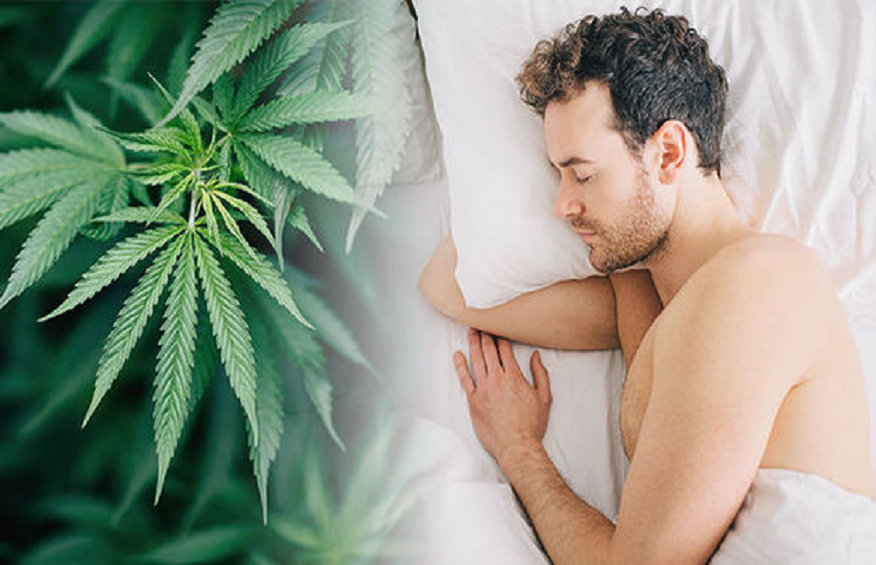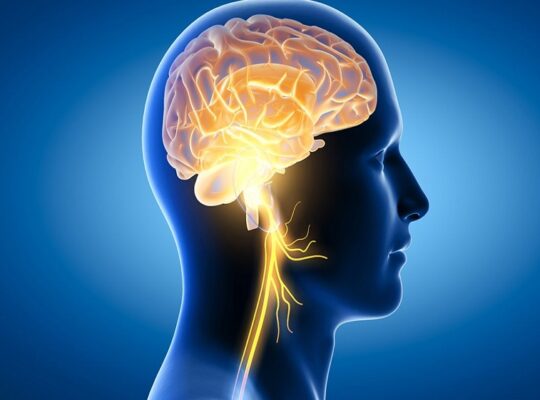If you’re looking for a good night’s sleep, you’re not alone: almost everyone you meet today is suffering from a poor sleep cycle. Whether you put the blame on stress, work deadlines, or dependence on the phone, one cannot change the fact that our sleep cycle is not “ideal” anymore.
While there are many options for improving sleep, from supplements to sleep coaches and high-tech gadgets, researchers are looking into cannabidiol (CBD) as an alternative. Continue reading to find out what science says about CBD and its potential effect on the sleep cycle before you do cbd oil buy from any website.
How Does CBD impact your sleep?
Understanding the endocannabinoid system (ECS) is critical for understanding how CBD may affect sleep.
The endocannabinoid system is a complex neurochemical network in the body that regulates various bodily functions, including emotions, pain, and sleep. While the body naturally produces endocannabinoid molecules, cannabinoids from exogenous sources, such as CBD, can affect the body via the ECS.
The hypothalamus, a peanut-sized structure buried deep in the brain, is enriched with cannabinoid receptors and governs the circadian rhythm of our sleep-wake cycle, which plays a large part in the ECS and influences sleep regulation. For those who don’t know about the Circadian rhythm, it is a 24-hour cycle that helps our bodies fall asleep at night and get up in the morning, and evidence reveals that the ECS plays a role in that cycle.
How Can CBD Help You Sleep?
Several studies indicate that CBD may aid sleep indirectly. According to research, CBD—which does not produce the intoxicatingly psychoactive “high” associated with delta-9 tetrahydrocannabinol (THC)—might help people with various sleep disorders, such as insomnia and restless leg syndrome, as well as other conditions known to negatively impact sleep.
CBD may help people relax by reducing anxiety and pain, two factors that might make it difficult to fall or remain asleep.
Insomnia: As we stated before, the hypothalamus is involved in various sleep-related activities, including body temperature regulation and sleep pattern synchronization. CBD can help individuals with insomnia because it works with the hypothalamus to control stress. One must understand that Insomnia is caused by an overactive stress response that spills over into a rest period when we’re not trying to process conscious trauma. CBD can suppress this dysregulated cycle of stress hormone overactivation and equalize the sleep and wake rhythm through the use of counteracting hormones.”
Circadian Rhythm Problems: Circadian rhythm disorders, also known as sleep-wake cycle disorders, happen when the body’s internal clock, which governs when you sleep and wake up, is out of sync with your surroundings. Circadian rhythm abnormalities can arise as a result of changes in sleep habits, which are frequently caused by travel or job, or as a result of a medical condition, aging, or genetics. CBD may improve both the quality and quantity of sleep by ensuring the body passes through the typical stages of sleep including REM sleep without interruption, which would benefit patients with circadian rhythm issues. CBD’s action on cannabinoid receptors sets off a chain of events that culminates in more natural sleep timing relative to the diurnal rhythm. CBD can be especially beneficial for persons who suffer from circadian rhythm issues as a result of different shift timings than usual.
Anxiety: CBD has been shown in numerous trials to be a viable treatment for anxiety disorders. While additional study is needed, studies have linked CBD use to better sleep because of its ability to reduce anxiety. CBD’s well-established role in reducing anxiety makes it ideal for calming intrusive thoughts before laying down to sleep. CBD primarily acts on the endocannabinoid receptors in the limbic system—a group of brain regions known to have a role in several critical activities such as emotion control, memory storage, and sexual function. When the limbic system is out of balance, such as when an intrusive memory causes anxiety and insomnia, CBD activates the ECS to help repress that memory and, as a result, promote sleep. CBD acts as a great equalizer by restoring hormone equilibrium.
Restless Legs Syndrome (RLS): CBD may be used to treat restless leg syndrome (RLS), a neurological illness that causes an unpleasant and uncontrollable urge to move the legs. A preliminary study suggests that CBD can lower the frequency of abnormal nerve firings that result in involuntary muscle twitching, which is a defining symptom of RLS. This can be very helpful for someone who is prone to waking up during the night due to limb movement.
Chronic Pain: Research indicates that CBD has promising pain-relief potential. Researchers discovered that by applying CBD oil-infused products to sore locations, study participants reported less discomfort and swelling, which are frequently associated with inflammation. For those who cannot tolerate the intoxication effects of THC, CBD—whether consumed or used topically—provides an alternative for analgesia (or pain relief). Having adequate pain control is critical to being able to relax both body and mind without the worry of the addictive or toxic effects of other analgesic alternatives when it comes to sleep.
Before you CBD oil in India, factors to consider include:
1. Be skeptical of extreme promises and CBD claims: It is better to stay away from those companies that are making outrageous promises about their CBD. CBD is supposed to be an additional supplement and cannot take the place of medicine prescribed to you. To feel more confident about your purchase, request a certificate of analysis (COA) from the brand before you buy cbd oil online India, which will tell you if the product contains the amount of CBD indicated on the label.
A COA will also include the following information:
how much CBD, THC, and other cannabinoids the product contains
Whether the product contains any potential contaminants such as heavy metals, pesticides or microbes.
2. The effects will differ depending on your health: CBD, like the other 100+ cannabinoids contained in the cannabis plant, has varied effects on different people. One study revealed that it can help those with clinical disorders sleep longer, while another published in Frontiers in Pharmacology reported that CBD had no effect on sleep in healthy participants. There are some people who take it before bed and sleep great, and then there are others who aren’t affected.
3. CBD may help with sleep problems caused by anxiety and pain illnesses: Anxiety may be at the root of many people’s sleep problems. It’s not that they can’t sleep; it’s that they’re afraid they won’t. That worry loop might cause patients to take longer to fall asleep. According to one 2020 study, those who used CBD for anxiety and depression treatment reported fewer symptoms and an improvement in their capacity to complete everyday tasks. CBD has been shown in studies to be effective in treating pain, particularly anxiety related to pain that disrupts sleep. According to one study, CBD is useful for pain relief, especially when inhaled.
So we are saying,
There are several tried-and-true methods for improving your sleep quality, such as avoiding blue light and alcohol in the hours before bed, using room-darkening curtains, and keeping the temperature cold. However, an increasing number of companies are offering products that feature a novel component for better sleep: CBD. Hempstrol is one such brand from where you can cbd oil buy that manufactures and markets CBD-based products in India and provides online medical consultation as well.










